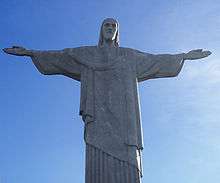
Why can't you harness Might so that it works for Right?
The Once and Future King (1958) is a novel by T. H. White based on the legends of King Arthur. It developed as a composite from earlier published works, and was the basis of the musical play Camelot (1960) and the 1967 film made of that, as well as the Disney animated film The Sword in the Stone (1963).
The Sword in the Stone (1938)
- Whoso pulleth Out This Sword of This Stone and Anvil, is Rightwise King Born of All England.
- Inscription on the Sword in the Stone
- Love is a trick played on us by the forces of evolution. Pleasure is the bait laid down by the same. There is only Power. Power is of the individual mind, but the mind's power is not enough. Power of the body decides everything in the end, and only Might is Right.
- Mr. P
- "But don't they fight each other for the pasture?"
"Dear me, you are a silly," she said. "There are no boundaries among the geese. ... How can you have boundaries if you fly? Those ants of yours — and the humans too — would have to stop fighting in the end, if they took to the air."- Ch. 18, Young King Arthur and the goose Lyo-lyok
- "The best thing for being sad," replied Merlyn, beginning to puff and blow, "is to learn something. That is the only thing that never fails. You may grow old and trembling in your anatomies, you may lie awake in the middle of the night listening to the disorder of your veins, you may miss your only love, you may see the world around you devastated by evil lunatics, or know your honour trampled in the sewers of baser minds. There is only one thing for it then — to learn. Learn why the world wags and what wags it. That is the only thing the mind can never exhaust, never alienate, never be tortured by, never fear or distrust, and never dream of regretting."
- Ch. 21
- EVERYTHING NOT FORBIDDEN IS COMPULSORY
- Sign above an ant colony. Ch. 13
The Queen of Air and Darkness (1939)

The odd thing is that Jesus did not turn the disciples into storm troopers, burn down the Temple at Jerusalem, and fix the blame on Pontius Pilate. On the contrary, he made it clear that the business of the philosopher was to make ideas available, and not to impose them on people.
- Why can't you harness Might so that it works for Right? I know it sounds nonsense, but, I mean, you can't just say there is no such thing. The Might is there, in the bad half of people, and you can't neglect it. You can't cut it out but you might be able to direct it, if you see what I mean, so that it was useful instead of bad.
- Ch. 6
- "By the way. You remember that argument we were having about aggression? Well, I have thought of a good reason for starting a war."
Merlyn froze.
"I would like to hear it."
"A good reason for starting a war is simply to have a good reason! For instance, there might be a king who had discovered a new way of life for human beings — you know, something which would be good for them. It might even be the only way from saving them from destruction. Well, if the human beings were too wicked or too stupid to accept his way, he might have to force it on them, in their own interests by the sword."
The magician clenched his fists, twisted his gown into screws, and began to shake all over.
"Very interesting," he said in a trembling voice. "Very interesting. There was just such a man when I was young — an Austrian who invented a new way of life and convinced himself that he was the chap to make it work. He tried to impose his reformation by the sword, and plunged the civilized world into misery and chaos. But the thing which this fellow had overlooked, my friend, was that he had had a predecessor in the reformation business, called Jesus Christ. Perhaps we may assume that Jesus knew as much as the Austrian did about saving people. But the odd thing is that Jesus did not turn the disciples into storm troopers, burn down the Temple at Jerusalem, and fix the blame on Pontius Pilate. On the contrary, he made it clear that the business of the philosopher was to make ideas available, and not to impose them on people."- Ch. 8 Conversation between Sir Kay and Merlin
The Ill-Made Knight (1940)

The fate of this man or that man was less than a drop, although it was a sparkling one, in the great blue motion of the sunlit sea.
- "You must come and stay with me," said the King. "That is in the stones also. Show you the holy dish some day, and all that. Teach you arithmetic. Nice weather. Don't have daughters unboiled every day. I think dinner will be ready."
- King Pelles
- Don't ever let anybody teach you to think, Lance: it is the curse of the world.
- Arthur
- If people reach perfection they vanish, you know.
- Arthur
- But there was a time when each of us stood naked before the world, confronting life as a serious problem with which we were intimately and passionately concerned. There was a time when it was of vital interest to us to find out whether there was a God or not. Obviously the existence or otherwise of a future life must be of the very first importance to somebody who is going to live her present one, because her manner of living it must hinge on the problem. There was a time when Free Love versus Catholic Morality was a question of as much importance to our hot bodies as if a pistol had been clapped to our heads.
Further back, there were times when we wondered with all our souls what the world was, what love was, what we were ourselves.- Ch. 13
The Candle in the Wind (1958)
- I would do anything for King Arthur.
- Sir Thomas of Warwick
- The fate of this man or that man was less than a drop, although it was a sparkling one, in the great blue motion of the sunlit sea.
External links
This article is issued from
Wikiquote.
The text is licensed under Creative
Commons - Attribution - Sharealike.
Additional terms may apply for the media files.